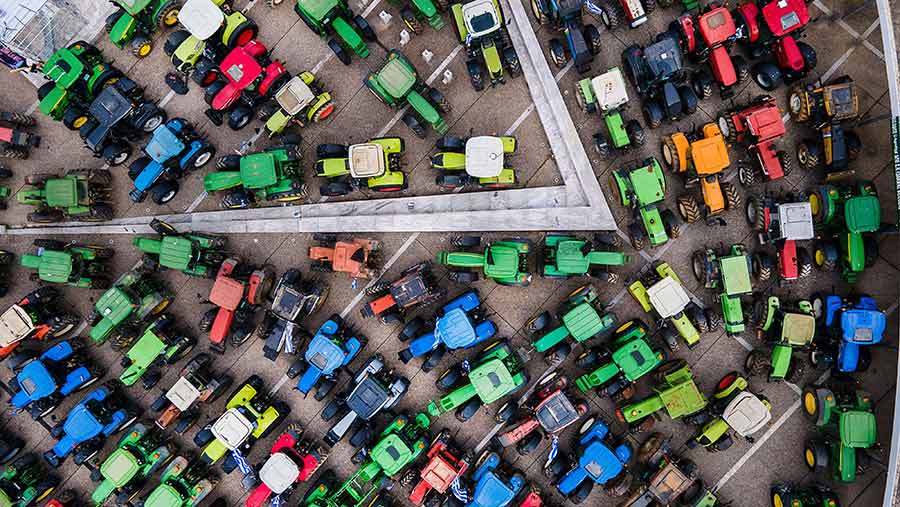Editor’s View: EU concessions vindicate protestors’ methods
 © ZUMA Press Inc/Alamy Stock Photo
© ZUMA Press Inc/Alamy Stock Photo News this week that protesting farmers in Europe have won concessions from the EU is vindication for those in favour of direct action here.
Whether the concessions granted will have a meaningful impact on farming profitability is another thing but it is clear politicians in many member states and at EU level are now taking the protests – and concerns of the protestors – seriously.
Having clinched a victory, will the bulk of farmers now be sufficiently mollified to go home or, sensing weakness, will they attempt to extract further promises?
See also: EU backtracks on pesticide reductions in wake of farmer protests
Perhaps the former. A glut of spring work surely draws near for many, and the French protestors are beginning to test the limits of the disruption that their police will permit.
What has been promised so far? Essentially a weakening of the EU’s rush to cut farming emissions and use of pesticides, although its commitment to cut overall societal emissions remains.
At the root of the problem is the consensus among major political parties for the need to march to net zero without having fully won the consent of the public for the high cost of the transition.
That consensus meant those with legitimate grievances about the pace of transition or its wider impact – such as food security – have been ignored or lumped in with climate change deniers and dismissed.
Little heed seems to have been paid to the good work our sector has already done either.
A Defra report last week noted that efficiency gains in dairy farming mean milk production is up 11% from 2000, with a 21% reduction in numbers of dairy cows over the same period, vastly diluting the emissions per litre of milk produced.
But progress cannot come at any price. And the harder the change, the more resistance there will be.
Politicians must accept that they have difficult choices to make if they intend to reduce targets.
Either they must completely win the argument with the public so that farming is compelled to change, as buying behaviour has adapted and farmers feel a financial, social and moral obligation to adapt with it.
Or “change” must be purchased, with farmers having their pockets stuffed with cash to overcome their reluctance to do something that is either expensive or radically different to the status quo.
It seems Defra is heading down the latter route with English farmers, while the Scottish and Welsh flounder, trying to appease all sides and satisfying none.
Failure to win the argument or pay for it creates fertile ground for protestors in favour of forcing them to backtrack here as well.

